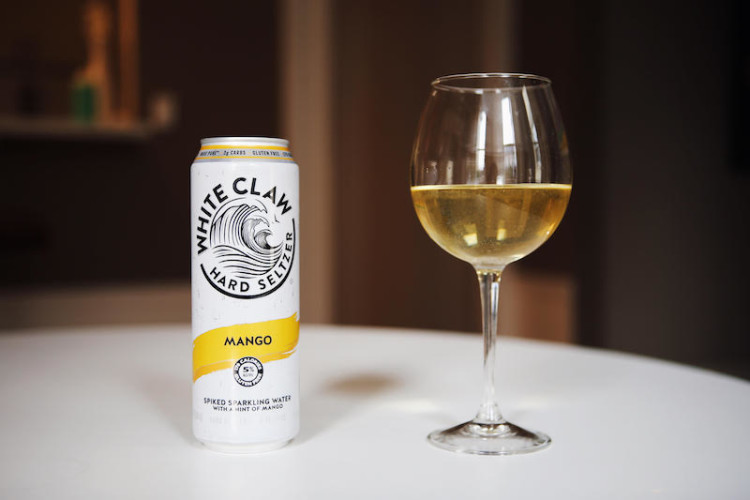Wine School
Wine Certification Guide: So You Want to be a Somm
Certified Sommelier and Stanford Wine Circle prez Emma Wood spills how to pick the right wine certification program for you.

By Emma Wood
January 13, 2020
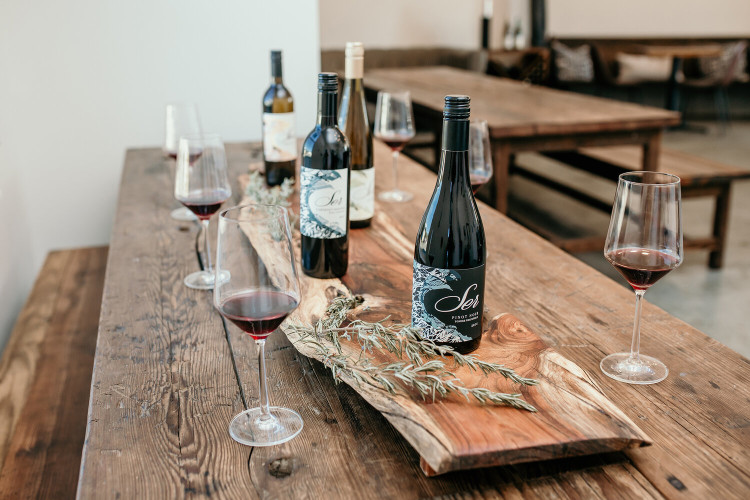
Wine can be intimidating. And while a wine course should in theory demystify wine, it can be confusing to even figure out which wine certification program to sign up for. I first fell in love with wine when I spent a year living in Italy and Argentina, discovering wines that could both fit my budget and open up a world of culture, tradition, flavor, and bringing people together. Upon returning I wanted a course to take my knowledge — and tasting ability — to the next level.
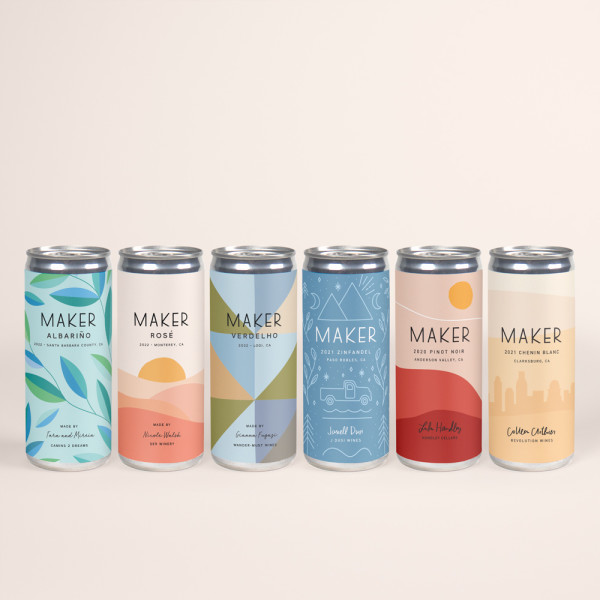
Taste 6 different canned wines
Test your tasting skills with our women-owned mixed pack – six wines from sox different female winemakers or winery owners.
I completed both the Wine & Spirit Education Trust and the Court of Master Sommeliers. While they complemented each other, I might have saved some time and money if I’d better understood the relative distinctions between the different wine certifications out there.
The gold standard in wine certifications
You may have heard about Master Sommeliers and Masters of Wine. These two distinctions are the pinnacle of wine certifications globally. They are run through two different organizations and each take many years to attain — think of them as the PhDs of the wine world.

Emma’s got street cred — she’s completed certifications with both the Wine & Spirit Education Trust and the Court of Master Sommeliers.
So just how rare are these exotic birds of the wine industry? Only 269 people have ever passed the Master Sommelier exams (think the movie “Somm”) and only 389 have attained the Master of Wine title.
Both involve theory and tasting exams. In addition, the MS exam involves a “service” exam and the MW involves a research paper. This hints at the differences in the programs: the MS program is more targeted towards wine service and hospitality managers, the MW program is more academic and focuses on the broader wine trade (e.g., writers, brokers, sales reps). Neither is a technical education on how to make wine, although the MW program goes into more depth on viticulture than the MS program.
Options for us mere mortals
You may be thinking, “Hi, I have a life. Are there courses that don’t involve ten years of work and a second mortgage? You’re in luck. Here are a few of the options if you want to start in the shallow end of the pool (er, barrel).
1. Court of Master Sommeliers (the Court)
Perhaps the best-known program in the US is the Court of Master Sommeliers, which culminates in the Master Sommelier certification. However, there are three additional levels before that: Intro, Certified and Advanced.
The intro course consists of a two-day course led by Master Somms, finishing with a short written exam (there’s no blind tasting at this level). It assumes a basic level of knowledge about wine but you do get access to a wealth of study resources when you register.
Starting with the Certified level, the Court does not offer a classroom component (just the theory, tasting and service exams). So, it’s super helpful to be working in the industry so you can get mentorship and access to a wider variety of wines to taste (without spending $$$ of your own to taste everything).
Bottom line: This wine certification program has the most social caché in the US and is the most widely recognized in restaurants. It’s a great option if you want a career in the hospitality industry or if you want a robust foundation but don’t plan to go beyond the Intro level. If you’re in the middle — not working in the industry but wanting to continue on — then a course like the WSET may be a better fit.
2. Wine & Spirit Education Trust (WSET)
The other best-known program is the Wine & Spirit Education Trust, whose programs are taught at accredited wine schools all around the world. It has a broader focus than the Court, including modules on things like viticulture & winemaking and the business of wine (but leaving out the service components). There are four WSET levels and the highest (the Diploma -think of this like a Masters degree), is a common feeder into the Master of Wine program.
The Level 1 in the WSET is quite basic and many people skip directly to Level 2. If you’re comparing with the Court, WSET Level 2 is similar or slightly easier than the Court’s “Certified” level. It involves 16 hours of class time (programs structure this time in various ways), a written exam, and is offered in more than ten languages.
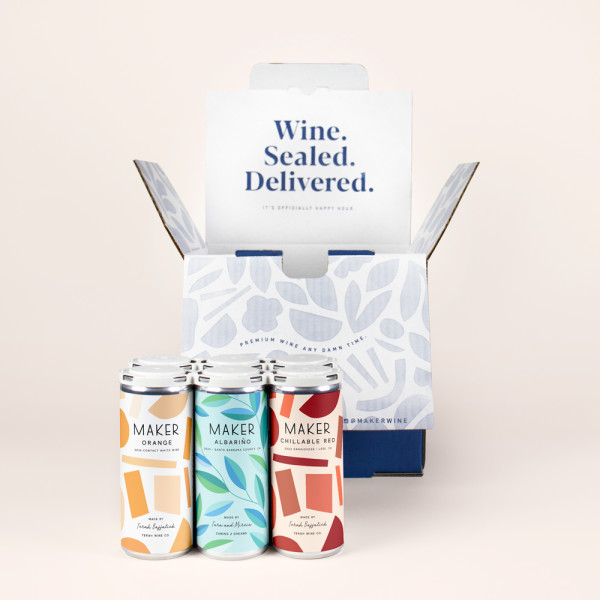
Shop premium natural wine
If you need a late night study companion, grab a tall glass of water and a can of premium natural wine from us.
Bottom line: The WSET offers a little less pizzazz than the Court but there’s a reason it’s the largest program out there. It is more global and offers significantly more in-class time (at the upper levels), making it a solid and versatile choice. Additionally, some may find it more well-rounded because of its focus on a broader swath of the wine supply chain (vineyard up through retail).
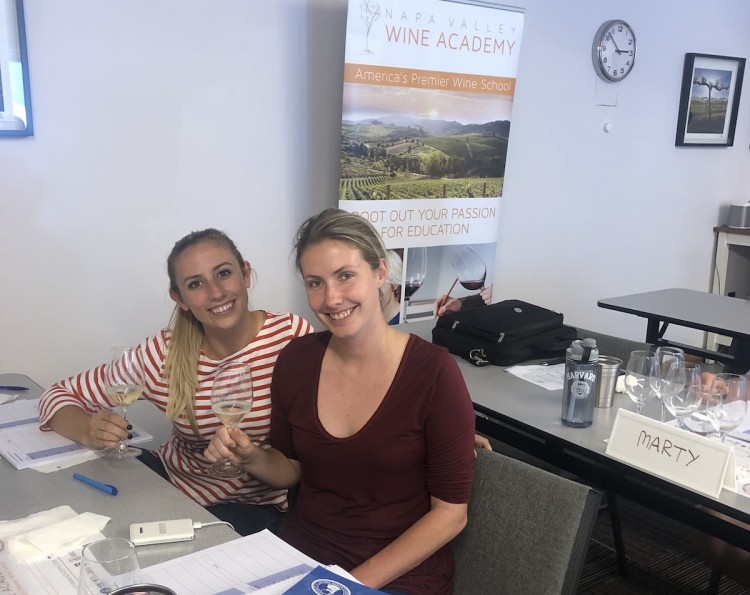
Sarah and Kendra on their WSET 2 journey. Check out the Napa Valley Wine Academy, they have a great weekend certification option.
3. Additional wine programs to check out
There are so many other ways to learn more about wine – including wine certifications from the likes of Masterclass, Wine Scholar Guild, Society of Wine Educators, and the Institute of Masters of Wine.
Here's a breakdown of each:
Masterclass — James Suckling teaches you about wine in 11 mini-classes. It’s the most “Hollywood” and least in-depth of the options but is great for those solving for quick and fun.
Wine Scholar Guild — less focused on wine professionals and offers country- and region-specific courses if you want to go deep on a particular area.
Society of Wine Educators — the self-directed Certified Wine Specialist program feels a bit like taking the SAT but instead of math or vocab, you’re studying wine.
Institute of Masters of Wine — while most people use the WSET as a way to prepare for the MW exam, you can go directly through the Institute if you prefer something completely self-directed and can prove a very strong existing foundation in wine.
Picking the right wine certification for you
Ultimately, picking the right program for you depends on what your goals are: What balance of guidance vs. self-direction do you want? Do you want to focus on the sommelier side of things or do you want a broader foundation? How far do you want to go? And finally, do you care about social caché and/or building your resumé?
Once you know, it'll be a bit easier to choose the best fit. In the meantime, find some additional resources below – wine royalty Jancis Robinson, Karen MacNeil, and others can teach you the ropes.
Other resources
“The World Atlas of Wine” by Hugh Johnson & Jancis Robinson
“Oxford Companion of Wine” by Jancis Robinson & Julia Harding
“The Wine Bible” by Karen MacNeil
“Perfect Pairings” by Evan Goldstein
Good luck on your wine education journey!
Recommended for you
Start-up Life
How We Pick Our Wines
About Maker
They make it.
Maker partners with best-in-class small producers that craft award-winning wines.
We can it.
We can the wine side-by-side with our winemaker partners, directly from their winery.
You drink it.
We’ll deliver Maker cans and their stories to your door in under 48 hours in California.
